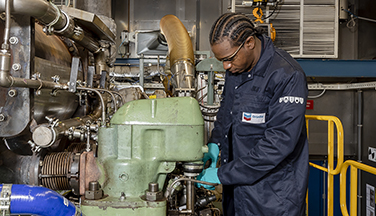marine industry insights
IMO’s Marine Environment Protection Committee has adopted a revised strategy to reduce greenhouse gas emissions to net-zero, by or around 2050. The new targets include a 20% reduction in emissions by 2030, a 70% reduction by 2040 (compared to 2008 levels), and the ultimate goal of achieving net-zero emissions by 2050.


"Over the next decade, the marine lubricants industry is likely to see continued evolution driven by regulatory pressures, with a focus on sustainability, efficiency and advanced technologies. Companies will need to remain adaptable and proactive in their strategies to meet future demands and regulatory changes." Ilse Oelius Smaal, Global Product Line Manager, Marine, Chevron Oronite
IMO 2050 GHG emission reduction targets
july 2023 MEPC80 outcome
For example, some options for the shipping industry to meet the new IMO target are:
Operating efficiency measures, like:
- speed and routing optimization
- energy management
Energy saving technologies, like:
- hull coating
- waste heat recovery
- wind energy support
Alternative fuels, like:
- bio or e-methanol/ethanol
- biofuel
- blue or green ammonia
- blue or green hydrogen
new engine designs
New and more complex engine designs are being introduced to get to the IMO target. The new designs strive for fuel flexibility, to enhance fuel economy and lower emissions. Reliable lubricants are important now more than ever and Chevron Oronite is ready to help you seamlessly adapt to the new fuels being introduced in the marine industry.
